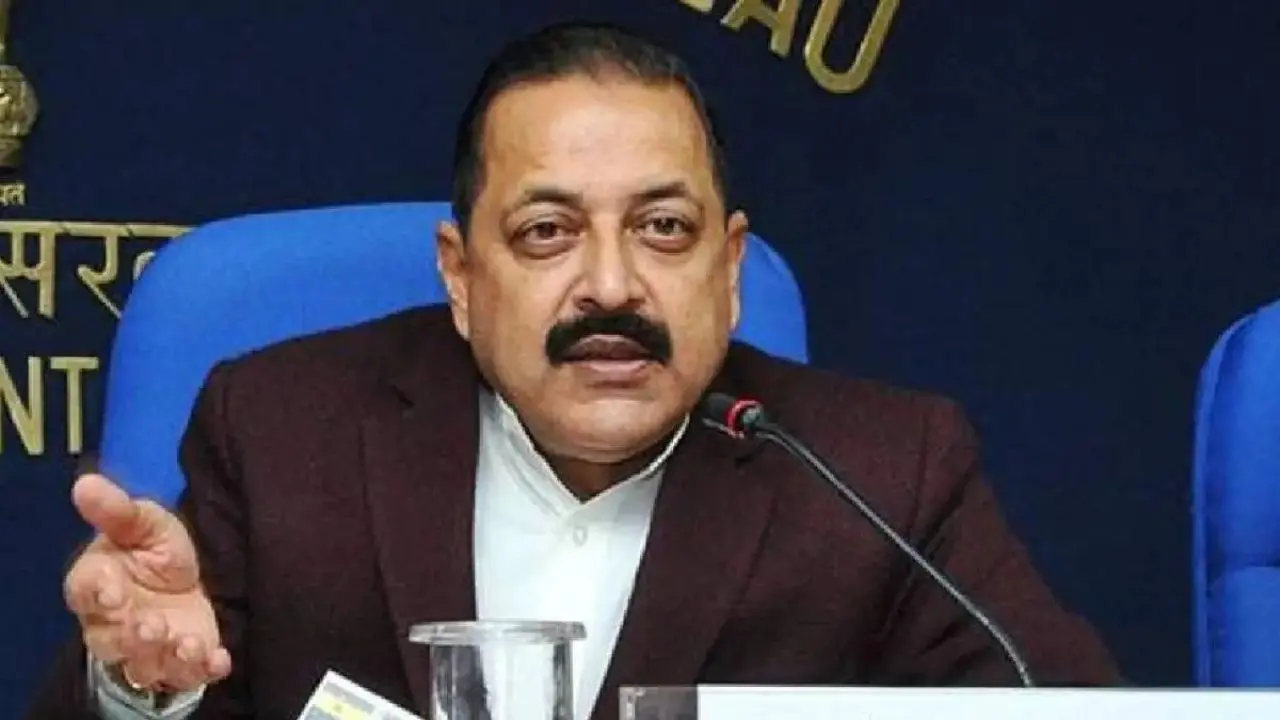Singh, in an interview to PTI, also said the government had opened up the nuclear power sector for joint ventures with public sector undertakings but not for the private sector

Jitendra Singh. Pic/PTI
India is working on new technologies such as the small modular reactors that can be factory-built and help make clean energy transition, Science and Technology Minister Jitendra Singh said here.
Singh, in an interview to PTI, also said the government had opened up the nuclear power sector for joint ventures with public sector undertakings but not for the private sector.
Small Modular Reactors (SMR), with up to 300 MW capacity are flexible in design and require a smaller footprint. Being mobile and agile technology, SMR can be factory-built unlike the conventional nuclear reactors that are built onsite.
A recent NITI Aayog report said, as many SMR designs were under various stages of research, development and licensing in different countries, global regulatory harmonisation, developing the manufacturing ecosystem and bringing in public as well as private capital would be the key for growth of the SMR industry. "We are already working on it. I think as times come, we have to move with the global world. SMR may become the order of the day. We are open to these new technologies and we are also adapting to them very fast," Singh said.
The minister said for the first time, the Modi government had approved a proposal to build 10 nuclear reactors under "fleet mode". The state-run Nuclear Power Corporation of India Limited (NPCIL) builds and operates almost all of the atomic power plants in the country.
Also read: Hypertension most common comorbidity among COVID patients: AIIMS doctor
In 2015, the government amended the Atomic Energy Act to enable joint ventures between the NPCIL and public sector companies to build nuclear power projects.
"Earlier, they were not partnering with anybody. So, we naturally had constraints on resources, finances. Now, we already have two important partnerships with Indian Oil Corporation and NTPC. We have moved in that direction, though not yet with the private," said Singh.
Earlier this month, the NPCIL signed a supplementary joint venture agreement with National Thermal Power Corporation (NTPC) to develop two 700 MW ressurised Heavy Water Reactors at Chutka in Madhya Pradesh and four 700 MW PHWRs at Mahi Banswara in Rajasthan.
The NPCIL has also formed joint ventures with Indian Oil Nuclear Energy and Nalco Power Company Limited for expansion of the nuclear power sector.
India's current installed nuclear power capacity is 6780 MW and it plans to add 21 more atomic power generating units with a total installed capacity of 15,700 MW by 2031.
This story has been sourced from a third party syndicated feed, agencies. Mid-day accepts no responsibility or liability for its dependability, trustworthiness, reliability and data of the text. Mid-day management/mid-day.com reserves the sole right to alter, delete or remove (without notice) the content in its absolute discretion for any reason whatsoever.
 Subscribe today by clicking the link and stay updated with the latest news!" Click here!
Subscribe today by clicking the link and stay updated with the latest news!" Click here!








